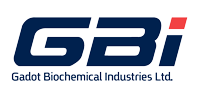
Bridging the Nutritional Gap with Calcium and Magnesium in Dairy Alternatives
Added minerals are providing key nutrients to plant-based dairy products
(HAIFA BAY, ISRAEL) December 13, 2023 – A growing number of consumers are turning to dairy alternative products, and this is creating outstanding opportunities to fortify plant-based milks and foods with key minerals, observed Michael Paikin, chief technologist of Israel-based Gadot Biochemical Industries.
For example, in Europe, between April 2022 and March 2023, there were 27 new oat-based ice cream launches, compared to only eight between April 2019 and March 2020. In America, oat-based dairy alternatives are also experiencing increased launch velocity, 34 and 17, respectively. While launches of almond and pea-protein products are also strong, they are not as robust. Plant-based milks and foods offer consumers the taste and feel of cow’s milk, are sustainable, and are also more environmentally friendly by releasing less methane into the atmosphere. However, these popular plant-based products provide less calcium than bovine dairy.
| “The rapidly increasing consumer awareness and demand for nutritionally enriched dairy alternatives creates a focus on nutrition content, notably minerals such as calcium and magnesium,” observed Paikin. While calcium is the primary mineral added to dairy and plant-based products, magnesium is a crucial element that should be included as well, according to Paikin. |  |
To summarize, calcium contributes to bone health through forming microscopic crystals that fill in the collagen framework of bone tissue, increasing strength and density. It is also important in regulating muscle contraction and blood clotting. Magnesium is essential in preventing calcification in arteries and veins, which can occur when high amounts of calcium are consumed regularly through both diet and supplementation.
Market differentiation of plant-based products can be differentiated among the crowding market and serve consumer needs of obtaining multiple nutrients in a convenient and pleasurably tasting product. “By adding calcium-complementary nutrients such as vitamin D and magnesium, a brand’s plant-based product will have a stronger appeal than counterparts that only contain calcium,” Paikin emphasized.

“However, it’s not as simple as just adding minerals into the plant-based formula for processing into the final product,” Paikin cautioned. There are three prominent challenges present:
- Solubility and Stability: Calcium and magnesium salts have varying solubility in plant-based milk, which can affect the stability and texture of the final product. Achieving a homogeneous mixture without sedimentation or separation is a key challenge.
- Taste and Mouthfeel: Adding minerals can alter the taste and mouthfeel of vegan milks. Calcium and magnesium salts can impart a chalky or metallic taste, which may be undesirable. Masking these flavors while maintaining the natural taste of the plant milk is a significant challenge.
- Bioavailability: The form of calcium and magnesium used must be bioavailable. Some forms of calcium and magnesium are more bioavailable than others, and choosing the right form is crucial for the nutritional value of vegan milk.
“Addressing these challenges requires a multi-disciplinary approach involving food scientists, nutritionists, and technologists to create a vegan milk product that is nutritious, palatable, stable, and economically viable,” Paikin noted.

As a leader in the mineral fortification category, Gadot offers the mineral solutions for calcium and magnesium fortification. These solutions provide a stable suspension with no sedimentation in milk and milk alternatives with no need for additional stabilizers, according to Paikin.
Gadot is approaching its 60th anniversary, delivering highly bioavailable ingredients, including tailor-made solutions, soluble minerals, and ingredient-base blends. Gadot´s portfolio includes an array of ingredients, including magnesium, calcium, zinc, potassium, and sodium in different forms, such as citrates, gluconates, and bisglycinates, and continues to expand its offerings based on market demand. For more information, visit www.gadotbio.com or contact Eva Criado, marketing manager at [email protected].



